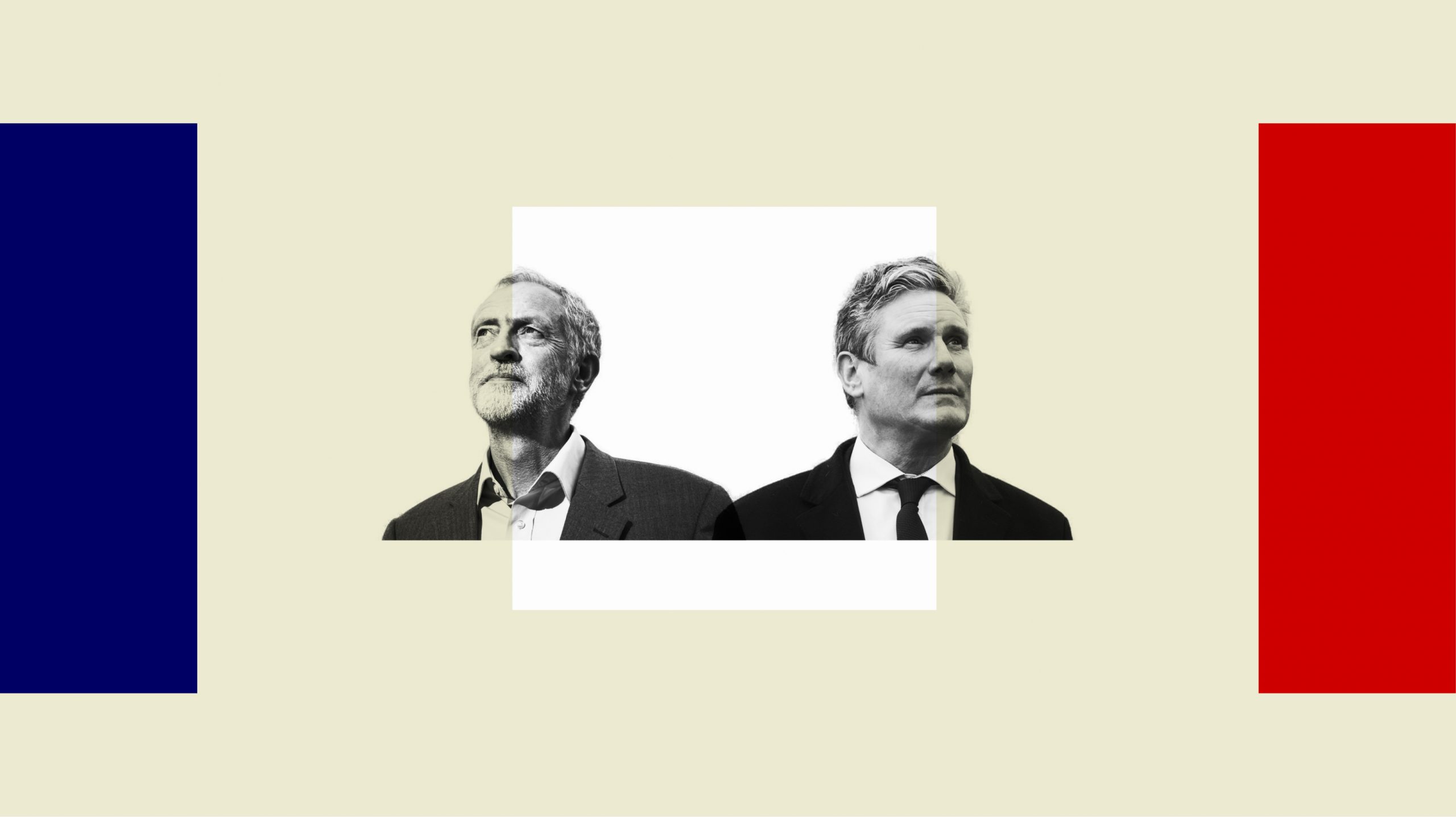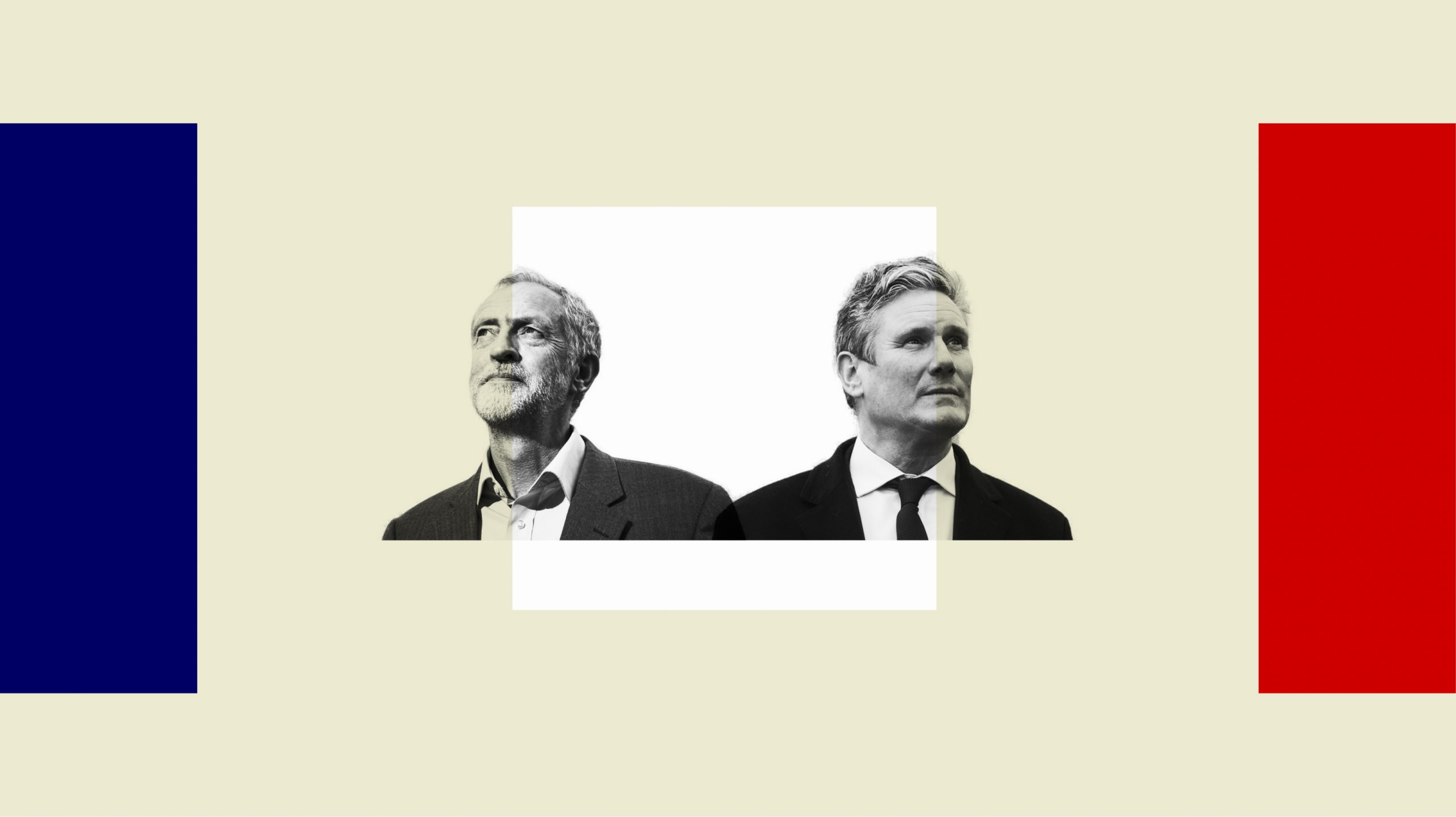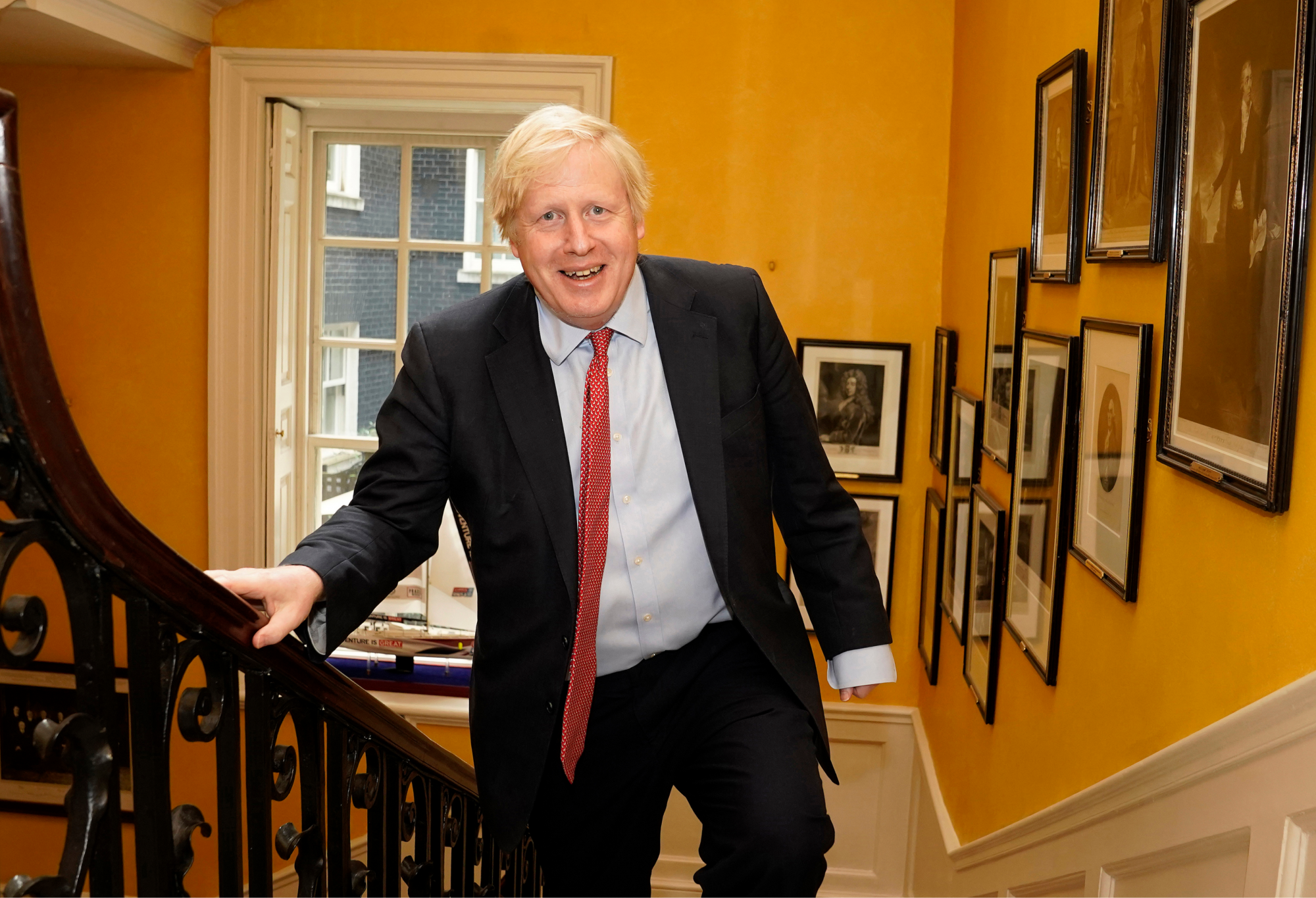The alarmists were right. This is the conclusion economist Umair Haque comes to in his exposition of the links between Brexit and the shortages of fuel, food and labour being experienced by British businesses and consumers.
Leaving the EU means making “Britain a permanently poorer country, incredibly swiftly and severely,” he says. “Shortages aren’t temporary, they’re permanent. They will cause inflation and stagnation. Britain is now a poorer society than it was when it was in the EU — that is what ‘shortages’ and ‘price rises’ really mean, you pay more and can’t get the same stuff as you did before, you have effectively grown sharply, swiftly poorer.”
The Conservative leadership are aware that shortages are a serious problem both for the real economy and for their political popularity. Their response however is not to fix the shortages, but to make them part of a false narrative of national renewal.
Boris Johnson used his party conference speck to tell a story in which economic hardship, instead of being both avoidable and a direct consequence of his own poor judgement, is in fact proof that Brexit is working, and will eventually transform the UK into a “high-wage, high-skill, high-productivity economy”. His story casts business as the enemy — addiction to low-cost labour business has, in Johnson’s eyes, conspired to keep British workers stuck in low paid, low quality jobs.
“We are not going back to the same old broken model,” Johnson said, “with low wages, low growth, low skills and low productivity enabled and assisted by uncontrolled immigration.”
“The answer to present stresses and strains,” he continued, “which are mainly a function of growth and economic revival, is not to reach for that same old lever of uncontrolled immigration. The answer is to control immigration.”
Johnson’s story is, says John Harris, “a frantic attempt to deny their own lack of preparation and competence; and, under the pressure of real-world developments, such as rising fuel bills, it may yet begin to fall apart.” But Johnson knows that stories have power. In politics they tend to have more power than facts, which is one reason why the right — which understands this instinctively — tends to win against a left which favours facts and reason.
Business leaders know they have been chosen to be the fall guy for Government failure. All ministers care about is “polling and votes” said one executive, adding: “These are transparent tactics. They have retrospectively decided that the reason for all these crises is the need to reboot the economy, and now they need an enemy to blame.”
RECOMMENDED
How to Build a Chumocracy
by Zeyd Anwar
Labour Must Look to its Opportunities and Beyond its Failures
by Mike Buckley
Britain’s Five Moments that Changed the Pandemic for the Worse
by Zeyd Anwar
“Where is the party of business?” asked Craig Beaumont, chief of external affairs at the Federation of Small Businesses, adding: “The media were apparently to blame for the fuel crisis, then it was consumers to blame, and now business is to blame for low wages and supply chain shortages. It’s striking out at anyone they can find.”
It is not only business leaders who have raised objections. Right wing think tanks, normally supportive of the Conservatives, supported business leaders’ criticisms. Johnson’s argument is “economically illiterate” said right wing think tank the Adam Smith Institute. “The public will soon tire of Boris’s banter if the government does not get a grip of mounting crises: price rises, tax rises, fuel shortages, labour shortages,” said Ryan Shorthouse, director of think tank Bright Blue.
Even Johnson’s ministers are breaking ranks. Five Cabinet ministers told Mail Political Editor Jason Groves that Johnson should be more “pragmatic” about business demands over visas to plug staff shortages. Despite Johnson insisting his hard line on low-skilled immigration will boost wages and standards for workers at home, the desperation among some in his team is palpable. “I think there are certain jobs British people no longer want to do,” one minister told Groves, arguing some jobs just need foreign staff.
A “Red Wall” Tory MP told The Telegraph that the Government’s response to shortages would test its support for seats in the North. “You can’t level up if you end up levelling heavy industry in the North of England,” the unnamed insider said.
The raised concerns of business, right wing commentators and his own ministers spells trouble for Johnson. If he cannot keep once supportive groups — in their own ways each influential with media and the public — onside he will be progressively weakened.
To add to his trouble shortages are only likely to get worse. Trade barriers raised by Johnson’s hard Brexit deal — which Haque describes as “a nation putting sanctions on itself” — will not be undone under this Government. Until they do it will become no cheaper, easier or faster for British businesses to import goods. Nor will Johnson compromise his immigration policy, which means labour shortages too are here to stay.
Meanwhile, pressures on the cost of living are only likely to grow, some because of Brexit, some due to wider pressures in the world economy. The Bank of England warns that inflation could remain higher than 4 percent well into next year. The HGV crisis is leading to restrictions on school dinner menus. The fuel crisis is still causing havoc, while energy suppliers fear annual power bills could top £2,000 for the first time ever. Finally the National Grid has warned of the biggest risk of power shortages for half a decade.
It has been clear since at least 2016 that Johnson cares little for the views of business or business leaders. He probably believes he is powerful enough to weather criticism from disgruntled cabinet ministers, particularly ones unwilling to put their name to a quote in the press.
But Johnson does care about public opinion. While the latest YouGov poll shows him comfortably ahead of the Labour Party on voting intention he will be less impressed to find that voters also believe that his own party is more likely than Labour to put up taxes.
Voters also know that Brexit is at least partly to blame for labour and goods shortages. According to a poll for the Observer, the majority of those asked — 68% — believe that Brexit is the cause, including 88% of Remain voters and 52% of Leave voters. Belief in the project too itself is falling: only 18% of those recently polled by YouGov now believe that Brexit is going well, against 53% who believe that it is going badly.
RECOMMENDED
How to End Britain’s Pandemic
by Zeyd Anwar
Labour Doesn’t Have a Story for How the Pandemic Ends
by Zeyd Anwar
Boris Johnson Has an Optimism Problem
by Zeyd Anwar
There is likely to be much more Brexit bad news over coming weeks, again because of choices Johnson is unlikely to back down on. His refusal to fully implement the Withdrawal Agreement, for example, by denying French fisherman access to British waters, and failing to comply with Northern Ireland Protocol, which regulates trade across the Irish Sea, are likely to result in the EU imposing sanctions on Britain.
The French government is already out of patience. “Enough already, we have an agreement negotiated by France, by Michel Barnier, and it should be applied 100 percent. It isn’t being,” said French European Affairs Minister Clement Beaune.
If the EU applies tariffs to UK goods entering the Single Market, as it has the right to under the agreements, added costs and burdens are applied to UK businesses. The end result is higher inflation, lower productivity and lost jobs. If the French cut off energy supplies to the UK, as they have threatened, winter power cuts become more likely still while already growing prices become even higher.
“Things are going to get worse — probably much worse,” says Haque. “Brexit was the act of a nation literally starving itself. Europe was Britain’s largest partner by far — providing it [with] the vast majority of what it imported, which was more or less all the basics in society. But now Britain cannot get those basics from Europe. The shortages are here to stay.”
At some point the public may run out of patience. If business leaders, as seems likely, continue to speak out against Government attempts to blame them, and to explain to the public that it is Government miscalculation and lack of preparedness that has resulted in shortages and price rises there will be political fallout. They are likely to be supported by EU leaders who will, perhaps in diplomatic language, point out that Johnson got exactly the trade deal he wanted in full knowledge of the consequences for the British economy.
The missing element is an alternative strategy. It is not the job of business or EU leaders to propose an alternative working relationship between Britain and the EU, or to explain how the British Government have made serial, and serious, errors in their economic management. It is the job of politician and in particular, opposition parties.
Perhaps emboldened by mounting crises, Labour is speaking out more clearly about the inadequacies of Johnson’s Brexit deal. Shadow ministers and Keir Starmer himself are now promising to “clean up the Tories’ Brexit mess” and “make Brexit work”. Shadow Trade Secretary Emily Thornberry has said that fixing the EU trade relationship would be her priority in office.
At a fringe event at Labour’s September conference, Shadow Foreign Secretary Lisa Nandy said that the party’s desire is for an “ambitious, close and lasting” relationship with the EU and that Labour would “go to the EU and ask for some good will and flexibility”. At the same event, Labour MP Hilary Benn argued that the EU-Ukraine association agreement could provide a template.
“Britain needs a high wage high productivity economy,” Starmer said in response to Johnson’s conference speech, “but this government has no plan to get there. Instead, wages are stagnant, bills are rising, and the Conservatives are raising taxes on working families and small businesses.”
For the public to truly understand why shortages and price rises are Johnson’s responsibility Labour will need to spell it out. It is the job of opposition parties, not business or foreign leaders, to articulate where a failing government has failed, and to map out an alternative strategy.
Until Labour does so the public will remain ill informed, Johnson will find it easier to get away with his lies and misdirection, and the public will be unaware that there are better futures, including ones where Britain has functioning trade, security and diplomatic relationships with its neighbours.
At some point before the next election the public need a clear articulation of why Brexit — at Johnson’s behest — resulted in these many avoidable problems, they need to know what a Labour government would do instead, and they need to understand that it would be worth it.
Labour needs its own vision of the future and its own route to a high wage, high skill economy, one that avoids the sky-high inflation, shortages and falsehoods inherent in Johnson’s. Explaining why Johnson’s Brexit is doomed to fail is an essential first step, articulating a case for a stronger economy rooted in closer European engagement the second.
Without its own story Labour will find it harder to win power. The public need to understand where we are and where we’re heading. Without an alternative they are more likely to stick with the story Johnson is telling them, however much it is based in Johnson’s signature lies and misdirection.








